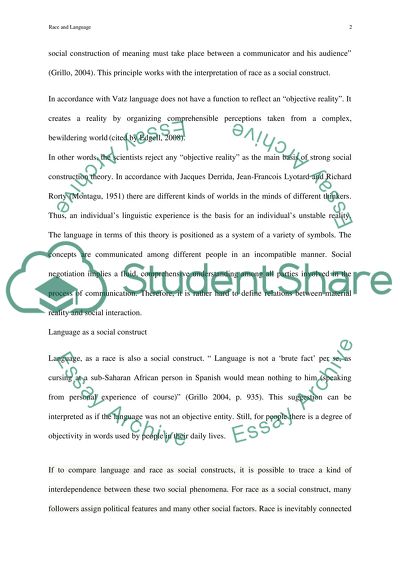Cite this document
(“Language and Race Essay Example | Topics and Well Written Essays - 1500 words”, n.d.)
Language and Race Essay Example | Topics and Well Written Essays - 1500 words. Retrieved from https://studentshare.org/sociology/1432424-what-role-does-langauge-play-in-the-argument-that
Language and Race Essay Example | Topics and Well Written Essays - 1500 words. Retrieved from https://studentshare.org/sociology/1432424-what-role-does-langauge-play-in-the-argument-that
(Language and Race Essay Example | Topics and Well Written Essays - 1500 Words)
Language and Race Essay Example | Topics and Well Written Essays - 1500 Words. https://studentshare.org/sociology/1432424-what-role-does-langauge-play-in-the-argument-that.
Language and Race Essay Example | Topics and Well Written Essays - 1500 Words. https://studentshare.org/sociology/1432424-what-role-does-langauge-play-in-the-argument-that.
“Language and Race Essay Example | Topics and Well Written Essays - 1500 Words”, n.d. https://studentshare.org/sociology/1432424-what-role-does-langauge-play-in-the-argument-that.


